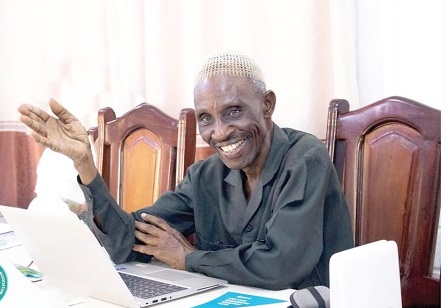The government has been encouraged to increase the District Assemblies Common Fund allocation from the current five per cent to 15 per cent of the Consolidated Fund to broaden the resource base of the assemblies for their development projects.
The Ghana Developing Communities Association (GDCA), a non-governmental organisation, further urged the government to ban upfront deductions, asserting that the current system leaves the local assemblies with inadequate resources for meaningful development.
The Executive Director of the NGO, Alhaji Osman Abdel-Rahman, also called for the release of a quarterly timetable for the disbursement of the District Assemblies Common Fund to ensure the timely disbursement of funds to the assemblies.
He said the irregular releases of the common fund continued to stall projects, disrupt planning and erode public confidence in local authorities.
He was speaking at a conference to mark this year’s African Union Decentralisation and Local Development Day in Tamale on the theme: “Building Resilient Communities through Inclusive Decentralisation and Equitable Development”.
The day, instituted by the African Charter on Decentralisation, aims to promote the values and principles of decentralisation, local governance and local development across the African continent.
Innovative strategies
Alhaji Abdel-Rahaman also called for a review of the DACF allocation formula to prioritise deprived districts and for constitutional reforms to allow the election of Metropolitan,
Municipal, and District Chief Executives (MMDCEs) to boost accountability and citizen participation.
Beyond funding concerns, he stressed the importance for MMDAs to implement innovative approaches for local revenue mobilisation to lessen their overdependence on central government transfers.
“Most MMDAs often struggle to raise enough internally-generated funds due to a narrow revenue base, weak enforcement mechanisms, lack of innovation in revenue collection and taxpayer resistance.
This leaves them heavily reliant on central government transfers, which undermines their autonomy and limits their ability to address community-specific needs,” he said.
While Ghana now boasts 261 MMDAs, he pointed out that funding gaps, weak human resource capacity and political interference continue to limit the system’s effectiveness.
Background
The GDCA, which has worked for 40 years to empower communities, particularly in northern Ghana, outlined its contributions to strengthening local governance.
Through its flagship Empowerment for Life Programme, the association has supported citizens in monitoring construction projects and service delivery, helping to improve quality and accountability.
It has also partnered MMDAs to provide physical infrastructure, such as livestock markets in Gushegu, Bawku and Buipe, which have significantly increased internally generated funds.
Writer’s email: mohammed.fugu@graphic.com.gh

